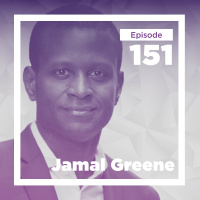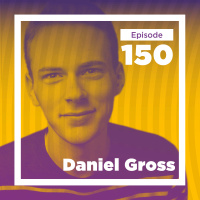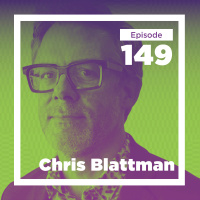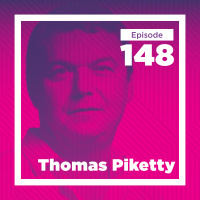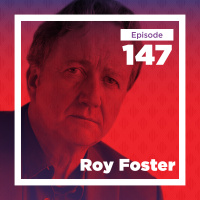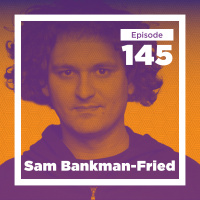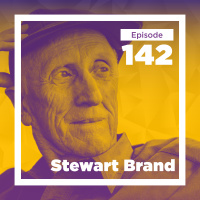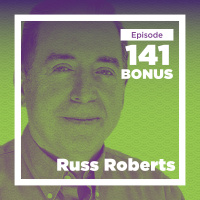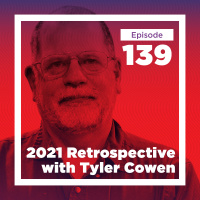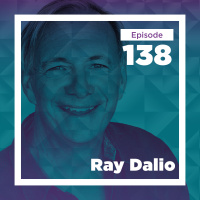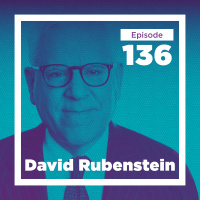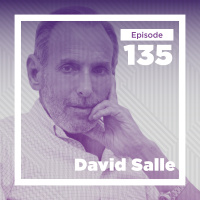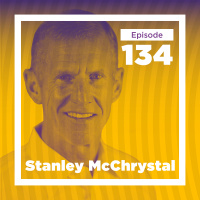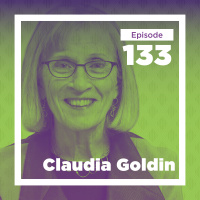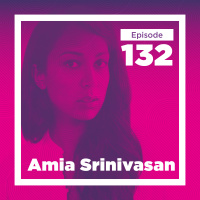Synopsis
Tyler Cowen engages todays deepest thinkers in wide-ranging explorations of their work, the world, and everything in between. New conversations every other Wednesday. Subscribe wherever you get your podcasts.
Episodes
-
Jamal Greene on Reconceiving Rights
01/06/2022 Duration: 48minWhat does it mean to uphold disability rights, or the right to economic liberty? What framework should be used when rights appear to conflict? Constitutional law expert Jamal Greene contends that the way Americans view rights—as fundamental, inflexible, and universal—is at odds with how the rest of the world conceives of them, and even with how our own founders envisaged them. In his new book, How Rights Went Wrong, he lays out his vision for reimagining rights as the products of political negotiation. The goal of judges, he says, should be to manage disagreement in a way that leads to social harmony and social cohesion—and by doing so, foster the ultimate goal of peaceful pluralism. Jamal and Tyler discuss what he’d change about America’s legal education system, the utility of having non-judges or even non-lawyers on the Supreme Court, how America’s racial history influences our conception of rights, the potential unintended consequences of implementing his vision of rights for America, how the law should v
-
Tyler and Daniel Gross Talk Talent
18/05/2022 Duration: 48minIf Tyler and Daniel's latest book can be boiled down into a single message, it would be that the world is currently failing at identifying talent, and that getting better at it would have enormous benefits for organizations, individuals, and the world at large. In this special episode of Conversations with Tyler, Daniel joined Tyler to discuss the ideas in their book on how to spot talent better, including the best questions to ask in interviews, predicting creativity and ambition, and the differences between competitiveness and obsessiveness. They also explore the question of why so many high achievers love Diet Coke, why you should ask candidates if they have any good conspiracy theories, how to spot effective dark horses early, the hiring strategy that set SpaceX apart, what to look for in a talent identifier, what you can learn from discussing drama, the underrated genius of game designers, why Tyler has begun to value parents more and IQ less, conscientiousness as a mixed blessing, the importance of valu
-
Chris Blattman on War and Centralized Power
04/05/2022 Duration: 48minWhat causes war? Many scholars have spent their careers attempting to study the psychology of leaders to understand what incentivizes them to undertake the human and financial costs of conflict, but economist and political scientist Chris Blattman takes a different approach to understanding interstate violence. He returns for his second appearance on Conversations with Tyler to discuss his research into the political and institutional causes of conflict, the topic of his new book Why We Fight: The Roots of War and The Path to Peace. Chris and Tyler also cover why he doesn’t think demographics are a good predictor of a country’s willingness to go to war, the informal norms that restrain nations, the dangers of responding to cyberattacks, the breakdown of elite bargains in Ethiopia, the relationship between high state capacity and war, the greatest threats to peace in Ireland, why political speech isn’t usually a reliable indicator of future action, Vladimir Putin’s centralized motives for invading Ukraine, w
-
Thomas Piketty on the Politics of Equality
20/04/2022 Duration: 53minWhen it comes to the enormous reduction of income inequality during the 20th century, Thomas Piketty sees politics everywhere. In his new book, A Brief History of Equality, he argues the rising equality during the 19th and 20th centuries has its roots not in deterministic economic forces but in the movements to end aristocratic and colonial societies starting at the end of the 18th century. Drawing this line forward, Piketty also contends we must rectify past injustices before attempting to create new institutions. He joined Tyler to discuss just how egalitarian France actually is, the beginning of the end of aristocratic society, where he places himself within French intellectual history, why he’s skeptical of data from before the late 18th century, how public education drives economic development, why Georgism isn’t sufficient to address wealth inequality, the relationship between wealth and cultural capital, his proposal for a minimum inheritance, why he turned down the Legion of Honor, why France should
-
Roy Foster on Ireland’s Many Unmade Futures
06/04/2022 Duration: 59min“The best history,” says Roy Foster, “is written when we realize that people acted in expectation of a future that was never going to happen.” While this is the case for many countries, it’s especially true of Ireland—the land of The Troubles, of colonization, of revolution and reforms. This sympathy within his scholarship sets Foster’s work apart. Not content to simply document the facts of what did happen, he’s undertaken the role of reconstructing the motivations that animated the Irish people throughout its storied history--without which we cannot truly understand the Ireland of today. Roy joined Tyler to discuss why the Scots got off easier than the Irish under English rule, the truths and misconceptions about Ireland as a policy laboratory for the British government, why spoken Irish faded more rapidly than Welsh, the single question that drove a great flowering of Irish economic thought, how Foster’s Quaker education shaped his view of Irish history, how the Battle of the Somme and the 1916 Easter Risi
-
Lydia Davis on Language and Literature
23/03/2022 Duration: 40minA prolific translator, author, and former professor of creative writing, Lydia Davis’s motivation for her life’s work is jarringly simple: she just loves language. She loves short, sparkling sentences. She loves that in English we have Anglo-Saxon words like “underground” or Latinate alternatives like “subterranean.” She loves reading books in foreign languages, discovering not only their content but a different culture and a different history at the same time. Despite describing her creative process as “chaotic” and herself as “not ambitious,” she is among America’s best-known short story writers and a celebrated essayist. Lydia joined Tyler to discuss how the form of short stories shapes their content, how to persuade an ant to leave your house, the difference between poetry and very short stories, Proust’s underrated sense of humor, why she likes Proust despite being averse to long books, the appeal of Josep Pla’s The Gray Notebook, why Proust is funnier in French or German than in English, the hidden wit
-
Sam Bankman-Fried on Arbitrage and Altruism
09/03/2022 Duration: 50minWhether it’s scaling an arbitrage opportunity or launching an ambitious philanthropic project, Sam Bankman-Fried has set himself apart. In just a few years, he’s not only made billions trading crypto, but also become a leading practitioner of effective altruism, with the specific aim of making lots of money in order to donate most of it to high-impact causes. He joined Tyler to discuss the Sam Bankman-Fried production function, the secret to his trading success, how games like Magic: The Gathering have shaped his approach to business, why a legal mind is crucial when thinking about cryptocurrencies, the most important thing he’s learned about managing, what Bill Belichick can teach us about being a good leader, the real constraints in the effective altruism space, why he’s not very compelled by life extension research, challenges to his Benthamite utilitarianism, whether it’s possible to coherently regulate stablecoins, the implicit leverage in DeFi, Elon Musk’s greatest product, why he thinks Ethereum is ove
-
Chuck Klosterman on Writing the Past and Relishing the Present
23/02/2022 Duration: 01h15minHow do you go about writing a book on an era that is, for many, recent history? When Chuck Klosterman set out to write his new book, The Nineties, he wasn’t interested in representing it as a misremembered era or forcing a retrospective view into modern ideology. Rather than finding overlooked signposts that signaled events to come, he says, he wanted to capture what it actually felt like to experience that time – the anxiety and excitement around scientific and technological progress, what it was like to be limited to a few cassette tapes or CDs at a time, the physical media and musical subcultures that would later evaporate with the advent of the internet. Though easier to research than more ancient history, complications arose when he pondered the bifurcation of his audience between those for whom the release of Nevermind is a personal memory and those for whom it’s as distant as the moon landing. Would he have to explain to readers what a compact disc is? Chuck joined Tyler to discuss the challenges of w
-
Sebastian Mallaby on Venture Capital
09/02/2022 Duration: 56minVenture capital powered the tech revolution, but what powers venture capital? With his in-depth knowledge and coverage of the sector you’d be forgiven for thinking Sebastian Mallaby is a veteran of the Silicon Valley scene. The author of several books on finance and economics, Sebastian takes pride in understanding his subjects intimately (perhaps too intimately, if you ask his critics). His latest book, Power Law: Venture Capital and the Making of the New Future, sheds light on the small but mighty industry. Sebastian joined Tyler to discuss why venture capital skills aren’t more replicable, the promise of biotech despite increased regulations, why venture capital remains concentrated in the Bay area even after the pandemic, the differences in risk-taking between East and West coast finance, the secret to Mike Moritz’s success as an investor, how Peter Thiel’s understanding of the power law set him apart, why he isn’t interested in becoming a venture capitalist himself, his predictions for the European tech
-
Stewart Brand on Starting Things and Staying Curious
26/01/2022 Duration: 57minFrom psychedelics to cyberculture, hippie communes to commercial startups, and the Whole Earth Catalog to the Long Now Foundation, Stewart Brand has not only been a part of many movements—he was there at the start. Now 83, he says he doesn’t understand why older people let their curiosity fade, when in many ways it’s the best time to set off on new intellectual pursuits. Tyler and Stewart discuss what drives his curiosity, including the ways in which he’s a product of the Cold War, how he became a Darwinian decentralist, the effects of pre-industrial America on his thought, the subcultural convergences between hippies and younger American Indians, why he doesn’t think humans will be going to the stars, his two-minded approach to unexplained phenomena, how L.L. Bean inspired the Whole Earth Catalog, why Silicon Valley entrepreneurs don’t seem interested in the visual arts, why L.A. could not have been the home of hippie culture and digital innovation, what libertarians don’t understand about government, why we
-
Russ Roberts on Israel and Life as an Immigrant
19/01/2022 Duration: 59minIn this special crossover special with EconTalk, Tyler interviews Russ Roberts about his new life in Israel as president of Shalem College. They discuss why there are so few new universities, managing teams in the face of linguistic and cultural barriers, how Israeli society could adapt to the loss of universal military service, why Israeli TV is so good, what American Jews don’t understand about life in Israel, what his next leadership challenge will be, and much more. Check out Macro Musings. Follow Macro Musings on Twitter. Subscribe to Macro Musings on your favorite podcast app. Read a full transcript enhanced with helpful links, or watch the full video. Recorded December 23rd, 2021 Other ways to connect Follow us on Twitter and Instagram Follow Tyler on Twitter Follow Russ on Twitter Email us: cowenconvos@mercatus.gmu.edu Subscribe at our newsletter page to have the latest Conversations with Tyler news sent straight to your inbox.
-
Ana Vidović on Prodigies, Performance, and Perseverance
12/01/2022 Duration: 44minIs genius born or made? For Croatian-born classical guitarist Ana Vidović the answer is both. Born into a musical family, she began playing guitar at five and was quickly considered a prodigy. But she’s seen first-hand how that label can trap young talents into complacency, stifling their full development. She’s also had to navigate changing business models and new technologies, learning for instance how to balance an online presence with her love of performing for live audiences. She joined Tyler to discuss that transition from prodigy to touring musician and more, including how Bach challenges her to become a better musician, the most difficult piece in guitar repertoire, the composers she wish had written for classical guitar, the Beatles songs she’d most like to transcribe, why it’s important to study a score before touching the guitar, the reason she won’t practice more than seven hours per day, how she prevents mistakes during performances, what she looks for in young classical guitarists, why she doesn
-
Conversations with Tyler 2021 Retrospective
29/12/2021 Duration: 55minWant to support the show? Visit donate.mercatus.org/podcasts. On this special year-in-review episode, Tyler and producer Jeff Holmes talk about the past year on the show, including one episode’s appearance on Ancient Aliens, Tyler’s picks for most underrated guests, how his 2021 predictions fared from last year’s retrospective, further reflections on the most downloaded—and most polarizing—episode of the year, how David Deutsch influenced Tyler’s opinions of Karl Popper, why he thinks his interviews with women tend to be better, and more. They also evaluate Tyler’s pop culture picks from 2011, play “Name that Production Function,” and answer listener questions from Twitter. Read a full transcript enhanced with helpful links, or watch the full video. Recorded December 8th, 2021 Other ways to connect Follow us on Twitter and Instagram Follow Tyler on Twitter Email us: cowenconvos@mercatus.gmu.edu Subscribe at our newsletter page to have the latest Conversations with Tyler news sent straight to your inbox.
-
Ray Dalio on Investing, Management, and the Changing World Order
15/12/2021 Duration: 58minWant to support the show? Visit donate.mercatus.org/podcasts When Ray Dalio was 23, President Nixon announced that the United States would no longer be adhering to the gold standard for American currency. Clerking on the floor of the New York Stock Exchange, Dalio expected to see chaos—but instead stocks soared. Curious to understand this phenomenon, he began to read about similar events in 1933, and it opened his eyes to the lessons that could be drawn from history. His latest book draws on the patterns he’s gleaned from studying dynasties and empires throughout time, as well as his own experiences as a hedge fund manager and founder of Bridgewater Associates. Ray joined Tyler to discuss the forces that will affect American life in the coming decades, why we should be skeptical of the saliency of current equities prices, the market as a poker game, the benefits and risks of the US dollar as the world reserve currency, why he thinks US inflation will not be transitory, the key to his success as an investor,
-
Ruth Scurr on the Art of Biography
01/12/2021 Duration: 51minThe most challenging part of being a biographer for Ruth Scurr is finding the best form to tell a life. “You can't go in there with a workmanlike attitude saying, ‘I'm going to do cradle to grave.’ You’ve got to somehow connect and resonate with the life, and then things will develop from that.” Known for her innovative literary portraits of Robespierre and John Aubrey, Scurr’s latest book follows Napoleon’s life through his engagement with the natural world. This approach broadens the usual cast of characters included in Napoleon’s life story, providing new perspectives with which to understand him. Ruth joined Tyler to discuss why she considers Danton the hero of the French Revolution, why the Jacobins were so male-obsessed, the wit behind Condorcet's idea of a mechanical king, the influence of Adam Smith's Theory of Moral Sentiments during and after the Reign of Terror, why 18th-century French thinkers were obsessed with finding forms of government that would fit with emerging market forces, whether Hayek’
-
David Rubenstein on Private Equity, Public Art, and Philanthropy
17/11/2021 Duration: 56minBaltimore native David Rubenstein is a founding figure in private equity, a prolific philanthropist, and author. From leveraged buyouts to his patriotic philanthropy to his leadership roles within institutions like the Smithsonian, Kennedy Center, and the National Gallery of Art, David has spent much of his life evaluating what makes institutions—and people—succeed. He joined Tyler to discuss what makes someone good at private equity, why 20 percent performance fees have withstood the test of time, why he passed on a young Mark Zuckerberg, why SPACs probably won’t transform the IPO process, gambling on cryptocurrency, whether the Brooklyn Nets are overrated, what Wall Street and Washington get wrong about each other, why he wasn’t a good lawyer, why the rise of China is the greatest threat to American prosperity, how he would invest in Baltimore, his advice to aging philanthropists, the four standards he uses to evaluate requests for money, why we still need art museums, the unusual habit he and Tyler share,
-
David Salle on the Experience of Art
03/11/2021 Duration: 46minWhen the audience for visual art expanded from small circles of artists and collectors into broader culture, the way art was experienced shifted from aesthetics to explanation. Art, it became thought, should be about something. But David Salle rebukes this literal-mindedness: according to him, what we think and feel when reacting to a piece of art is more authoritative than what’s written on the label next to it. A painter, sculptor, and filmmaker, David is also the author of How to See: Looking, Talking, and Thinking about Art, a highly regarded book on artistic criticism. David joined Tyler to discuss the fifteen (or so) functions of good art, why it’s easier to write about money than art, what’s gone wrong with art criticism today, how to cultivate good taste, the reasons museum curators tend to be risk-averse, the effect of modern artistic training on contemporary art, the evolution of Cézanne, how the centrality of photography is changing fine art, what makes some artists’ retrospectives more compelling
-
Stanley McChrystal on the Military, Leadership, and Risk
20/10/2021 Duration: 53minStan McChrystal has spent a long career considering questions of risk, leadership, and the role of America’s military, having risen through the Army’s ranks ultimately to take command of all US and NATO forces in Afghanistan, a force representing 150,000 troops from 45 countries. Retiring as a four-star general in 2010, he has gone on to lecture at Yale and launched the McChrystal Group, where he taps that experience to help organizations build stronger teams and devise winning strategies. His latest book, which he tells Tyler will be his last, is called Risk: A User’s Guide. He joined Tyler to discuss whether we’ve gotten better or worse at analyzing risk, the dangerous urge among policymakers to oversimplify the past, why being a good military commander is about more than winning battlefield victories, why we’re underestimating the risk that China will invade Taiwan, how to maintain a long view of history, what set Henry Kissinger apart, the usefulness of war games, how well we understand China and Russia,
-
Claudia Goldin on the Economics of Inequality
06/10/2021 Duration: 49minHarvard professor Claudia Goldin has made a name for herself tackling difficult questions. What was the full economic cost of the American Civil War? Does education increase or lessen income inequality? What causes the gender pay gap—and how do you even measure it? Her approach, which often involves the unearthing of new historical data, has yielded lasting insights in several distinct areas of economics. Claudia joined Tyler to discuss the rise of female billionaires in China, why the US gender earnings gap expanded in recent years, what’s behind falling marriage rates for those without a college degree, why the wage gap flips for Black women versus Black men, theoretical approaches for modeling intersectionality, gender ratios in economics, why she’s skeptical about happiness research, how the New York Times wedding announcement page has evolved, the problems with for-profit education, the value of an Ivy League degree, whether a Coasian solution existed to prevent the Civil War, which Americans were most l
-
Amia Srinivasan on Utopian Feminism
22/09/2021 Duration: 01h05minWhat is our right to be desired? How are our sexual desires shaped by the society around us? Is consent sufficient for a sexual relationship? In the wake of the #MeToo movement, public debates about sex work, and the rise in popularity of “incel culture”, philosopher Amia Srinivasan explores these questions and more in her new book of essays, The Right to Sex: Feminism in the Twenty-First Century. Amia’s interests lay in how our internal perspectives and desires are shaped by external forces, and the question of how we might alter those forces to achieve a more just, equitable society. Amia joined Tyler to discuss the importance of context in her vision of feminism, what social conservatives are right about, why she’s skeptical about extrapolating from the experience of women in Nordic countries, the feminist critique of the role of consent in sex, whether disabled individuals should be given sex vouchers, how to address falling fertility rates, what women learned about egalitarianism during the pandemic, why

